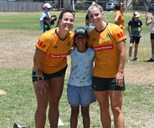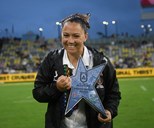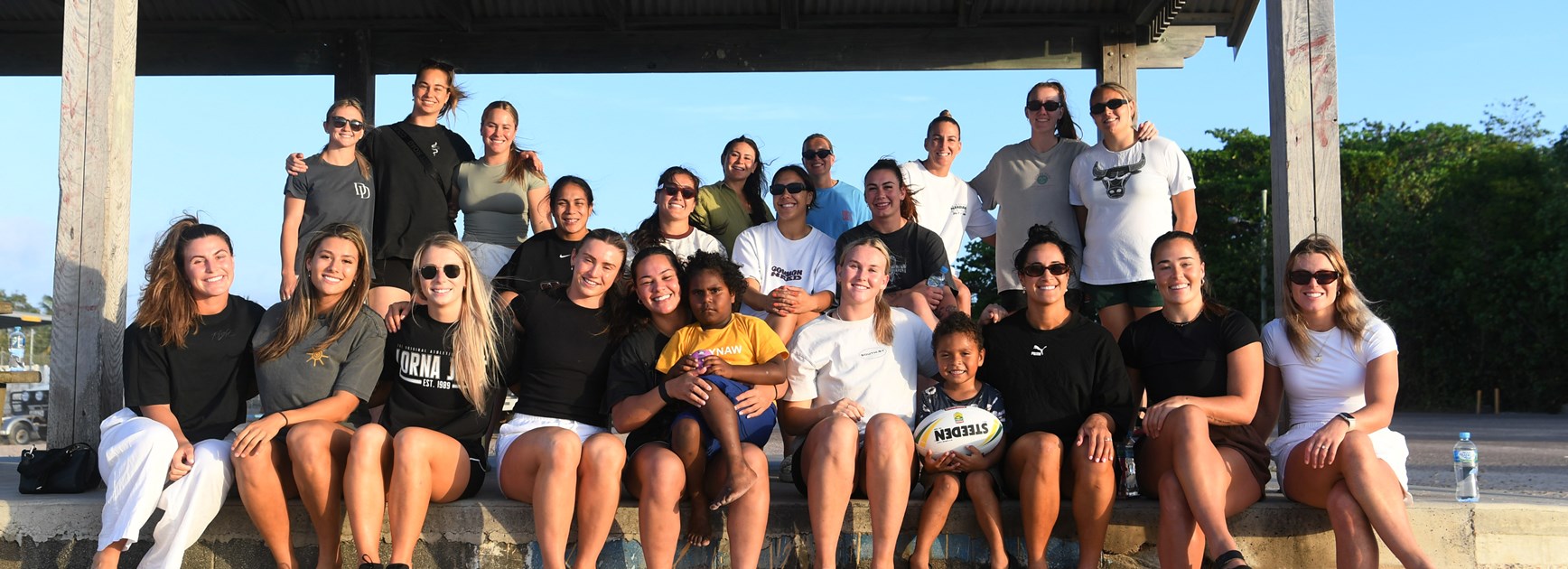
The Jillaroos became the first national team to visit the Torres Strait Islands last year, with coach Brad Donald hoping to open his players' eyes to the culture of the region.
Setting up camp on Thursday Island in the lead-up to their final Pacific Championships game, Donald said it was an enriching experience for all involved and a way for the players to understand the diversity of cultures they play for when representing Australia.
“It was an experience of a lifetime and something that our players will talking about and pass down the knowledge to all the Jillaroos that follow until we get the team back there again some time in the future,” Donald said.
“It was a real eye-opener for everyone and I think they truly understand the difference in culture and the beautiful people and the community that Torres Strait Island people are.
“The traditions are really strong. One of the things that we saw were three-and-four-year-old kids doing traditional dance as second nature and I think that was really surprising for our guys because we didn’t actually realise how traditionally the people of TSI still live.
“It was really heartwarming. It was amazing to learn and it was amazing to see and it was amazing to understand.
“One of great the things for me as the coach of the team was we were able to see it and then share it and pass it on and help educate and help spread the word.
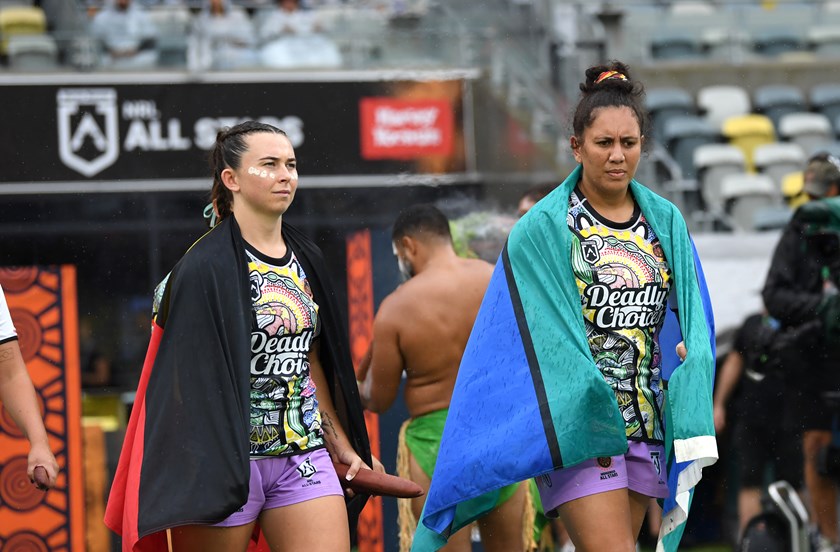
“I think our playing group had a huge understanding and they see that they have a huge responsibility moving forward as to what it means to truly represent Australia from First Nations through to our Pasifika girls, Māori girls, immigrants all the rest of it, but getting to the Torres Strait Islands really helped us have that sense.”
The islands and communities of the Torres Strait stretch from across the top of Queensland across to Northern Territory and nearly reaching up to Papua New Guinea, and despite the relatively small population, some of the biggest stars of the game have called this region home or have family ties.
This is especially true of the Jillaroos, with players such as inaugural female Dally M medal winner Jenni-Sue Hoepper and current Indigenous All Stars co-captain Tallisha Harden having family connections in the region.
“Aboriginal and Torres Strait Islander people are over-represented in our game, over 20 percent of our participation and pathways, but if you break that down again into just Torres Strait Islanders, I am sure it will be massive,” Donald said.
Harden is a descendant of the Argun Tribe of Badu and Wadagum Tribe of Mabuyag and recently started work as an Indigenous Community Engagement Officer at St Patrick’s College in Townsville.
She sees first-hand the large numbers of talented young Indigenous, and in particular Torres Strait Islander, stars in the making.
“I think if you look at athletes identified into higher programs per the population; it's huge, the numbers that are generated not just in the women's, but in the men's too,” Harden said.
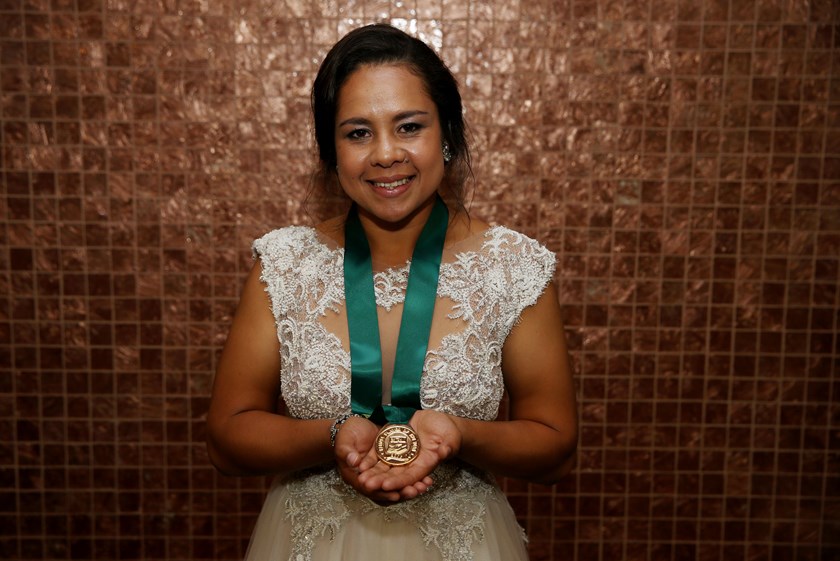
“I think Jenni-Sue Hoepper was a big trailblazer for that. She was the first ever Dally M Medallist [in 2015] that's just next level.
"She’s the first ever Dally M Medallist and she's from the Torres Straits, that’s huge. She’s a huge inspiration.
“There's such a talent pool up in the Torres Strait. A lot of our girls and boys come down to boarding school through Cairns, Townsville and Rockhampton.
“I've got so many Torres Strait Islander girls at my school, we won a Gala Day where 16 of the 17 girls were Torres Strait Islander or Aboriginal, which is massive.
“They all just want to play, they love their footy, and they're good too.

“The girls all just want to be Cowboys and NRLW players, they do just want to tackle me.”
In recent seasons, the Jillaroos have undertaken a project to acknowledge the First Nations and Pasifika heritage of players selected for the national team, with a flag accompanying their name on the honour roll.
Led by Donald and All Stars coach Jess Skinner, who also heads up the First Nations Gems and NRL Indigenous Women's Academy, the flag initiative is one more way of making sure Indigenous culture is recognised in the Australian team.
“We relied on speaking to the girls themselves, the old girls, because our history goes back to 1993-95," Donald said.
"We are still in a really fortunate position to make sure that we capture it all.
“It was a number of calls and (Australian Rugby League Indigenous Council chair) Katrina Fanning came into camp and even the mob up there.”
This season, Indigenous stars of the women’s game were celebrated at the annual NRL All Stars event, with Skinner coaching the Indigenous Women’s team to victory over their Māori counterparts in Townsville.
